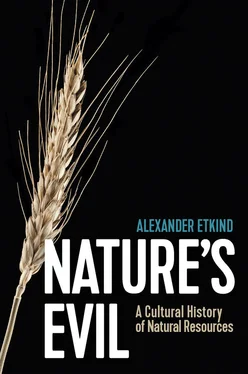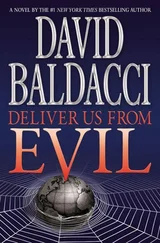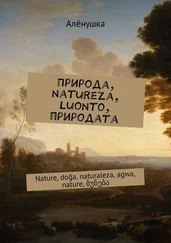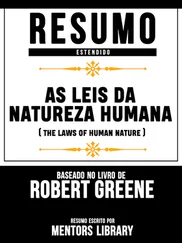One particular part of the story of meat is abstinence from it. Jews refrained only from eating pork, but the Apostle Paul wrote to the Romans that Jesus advised against eating any meat. St Jerome thought that before the Flood people neither ate meat nor drank wine. During the Renaissance, vegetarianism was linked to the Pythagorean tradition, which promised dominance over nature and the immortality of the body. Following this, many freemasons abstained from meat. In the eighteenth century the most successful proponent of abstinence from meat-eating was the Italian doctor Antonio Cocchi, a fellow of the Royal Society and founder of the first Masonic lodge in Florence. Drawing on the experience of doctors and travellers, he was the first to show that scurvy was caused by sailors’ rations, which consisted of salted meat. The conquering of scurvy was one of the crowning achievements of the Enlightenment.
In the British Empire, vegetarianism was connected with Hinduism, which was often promoted by people returning from the colonies. John Holwell, a governor of Bengal, was a vegetarian. In retirement, he promoted vegetarianism and tried to prove that Hinduism was the root of Christianity. 6Such vegetarianism was a manifestation of positive Orientalism, in which the centre – London and Manchester – imitated the periphery – India. In Europe, vegetarianism was considered an English fad. The first lifestyle movement, vegetarianism filtered down from the elite, captivating the middle classes and absorbing other new ideas. As one London newspaper wrote in 1878, ‘As a matter of fact, vegetarianism does seem somehow or other to be correlated to all sorts of strange “isms” … A vegetable solus eater is pretty sure to hold new and strange views on political economy, to be a member of the Society for Psychical Research, to dress in all wool clothing, to abjure the razor, or to wear soft and unsightly hats.’ 7The Russians and Americans connected vegetarianism with the simple life, the rejection of luxury, and the love of nature. The popular sects – the Russian Khlysts, the American Shakers – didn’t eat meat. Henry Thoreau and Lev Tolstoy produced similar arguments in support of vegetarianism: meat was a symbol of luxury, lust and inequality between people. Vegetarianism was the subject of ideological battles and also a personal choice. There were notable vegetarians on both sides of the divide between good and evil – Shelley and Wagner, Gandhi and Hitler.
This debate gained another dimension in the twenty-first century. Meat and dairy products provide just 18 per cent of the global consumption of food calories, but their production creates 60 per cent of carbon emissions from agriculture. As a result, farm animals produce more emissions than come from the total of all kinds of transportation. Beef, for example, contributes only 3 per cent of the calories in the American diet, but emissions from cattle make up half of all agricultural emissions in the USA. Using up a great deal of oil and land, beef should be expensive, but agricultural subsidies halve its price in the consumer market. Governments are directly financing one of the main sources of pollution on the planet. If humanity gives up meat and milk, it will liberate three-quarters of the land currently taken up by agriculture. More water would become available as well: worldwide, cattle are responsible for a third of water consumption and more than half of water pollution. 8The only chance of feeding the growing world population while at the same time reducing emissions is to make radical cuts (up to 40 per cent) in cattle farming in the countries of the Global North. This is a realistic goal: during the last fifty years the consumption of beef has already reduced by a third, in part thanks to the propaganda of vegetarian ‘cranks’.
Scientists don’t believe that animal protein has any advantages over plant protein, while its disadvantages are many: to produce a kilogram of protein from peas takes fifty times less land and creates twelve times fewer emissions than to produce it from cattle. If you become exclusively vegetarian, you will cut your personal contribution to the pollution of the planet more than if you give up flying or change your diesel car for an electric model. The transition to a vegan diet by all of humankind will not be cheap to achieve; but the world pays out half a trillion dollars a year in agricultural subsidies, and political will could employ this money for rebuilding agriculture. Scientists are proposing to do this gradually, by redirecting subsidies and introducing taxes on carbon emissions. Meat and milk will be treated like tobacco and alcohol, which are taxed at an especially high rate. Supermarket shelves are filled with plant alternatives to milk. Vegans are for the most part young people with university degrees, and it isn’t clear how veganism can turn into a mass movement. Getting people hooked on sugar, tea or opium was easier than getting them used to non-dairy milk and fresh vegetables (see chapter 4).
In 1784 the Massachusetts State House passed a resolution to install a wooden carving of a cod above the chamber, ‘as a memorial of the importance of the Cod-Fishery to the welfare of this Commonwealth’. The most important source of protein in colonial America, cod was irreplaceable as a food source for slaves on the sugar islands and Catholics during their fasts. The cod’s biology meant it could be caught in vast numbers, preserved and consumed. Each fish weighed 10 to 12 kilos or even more. Its muscular, non-oily flesh made it easy to dry, and it contained 80 per cent protein – much more than dried beef. Dried cod could be kept in a ship’s hold for years and transported anywhere in the world. Oily fish, such as herring, was not suitable for drying. It had to be smoked or pickled in brine, which meant it was heavier to transport or didn’t keep well.
The fishing technique was simple. Cod was caught using homemade tackle and bait consisting of fish guts from a previous catch. The stunned fish were split, generously salted and pegged out to dry in the sun and wind. This could be done right on deck, but large catches had to be landed and dried on the shore. Cod’s liver was dealt with separately. It produced oil that was used for greasing anchors and later for lubricating steam engines. In Italy and Spain, cod – baccala – is still considered a traditional dish. The industry flourished on account of the cod’s unusually prolific breeding cycle: the average female cod produces 3 million grains of roe. The sea belonged to everyone, but a catch of fish belonged to the fisherman concerned. In order to get paid, a fisherman would cut out the tongues of all the fish he had caught and collect them in a box on the deck.
Europeans started to enjoy dried cod from the northern shores of Scandinavia as early as the thirteenth century; soon it became one of the staple products of the Hanseatic League. In Northern Europe, people preferred herrings soused in brine pickle, but in Southern Europe, and then in America too, dried cod was more popular. From the sixteenth century onwards, the Basques fished regularly near Newfoundland. They organised triangular trade by carrying Spanish wool to England, taking English woollen and manufactured goods to the American colonies and then, on the return trip, transporting salted cod to northern Spain: one such trip took a year. 9The shipowners took the lion’s share of the profits – the biggest houses in Boston, Salem and other ports belonged to them. In the 1640s, British capital was added to the mix and a new triangle developed: English ships unloaded finished goods and salt at Boston, from there shipped cargoes of cod to Jamaica and other Atlantic islands, where they loaded up with sugar to take back to England. Cod disappeared from coastal waters – this always happens with communal resources. The Boston fishing schooners went further and further out to sea, all the way to Newfoundland. The risks grew fast, and insurance premiums increased too. This meant the fishermen became even more dependent on the merchants who gave them credit or provisions. In mid-ocean they dried the cod on board their ships. This resulted in a large quantity of inferior-quality dried cod, suitable only for the slaves on the sugar islands. As the American ships forced out the British vessels supplying the West Indies, they took industrial quantities of molasses back to Boston, where they distilled rum, in contravention of the mercantilist Navigation Acts. Worse still, the American fishermen sold their cod at Saint-Domingue (Haiti) and other French colonies and bought molasses there cheaply. In retaliation, the English fleet began seizing American vessels.
Читать дальше












